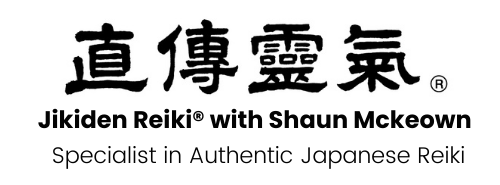5 Ways Reiki Can Improve Your Sleep
Over the years I have helped many people improve their sleep, using lifestyle coaching as well as Reiki. I like to take a comprehensive approach to any challenge and look at various approaches however I have observed people I have helped reporting improvements in their sleep when Reiki has been the only approach used. So I thought the benefits of Reiki with regard to sleep would be an interesting topic. In this context, it may be helpful to consider the collective effect of all of the individual ways Reiki might help when considering its value in helping improve sleep. So I have highlighted 5 key ways below for you to consider.
I have focused on those things that are more specific to Reiki. For example, laying in a quiet room with relaxing music for an hour (as is commonly the environment in which a Reiki treatment is delivered) may promote a restful state but that can be achieved anywhere and is not the unique way in which Reiki helps people with sleep, so I will just class that as a supportive environment and focus on those things that are specific to Reiki:
1. To start with Reiki promotes deep relaxation, commonly during Reiki treatments, it’s that place between awake and asleep, a level deeper than what would be experienced by traditional relaxation methods and Reiki tends to take people there (so independent of us need to do or learn or do anything). It’s not uncommon for people to fall asleep during a Reiki treatment. This enhanced state of relaxation can still be experienced beyond the treatment appointment itself. So with the objective of helping with sleep, having Reiki treatments in the evening can work well, to promote good sleep that evening especially.
2. Many report Reiki helps them with clearing the mental clutter in their minds. Or the calming effect of Reiki reducing internal conflict and easing the tension in our mind, which may not be supporting our sleep.
3. Reiki is well known for helping people reduce stress and supporting emotional well-being. The common state of high stress that many of us live within itself can be a major factor in people’s sleep problems. So Reiki’s stress-reducing effects can promote a calmer environment mentally and physically, by reducing the volume or intensity of stress a person might be feeling, so could be thought of as a supporting foundation for good sleep.
4. Ki is the non-physical energy that animates all life. The specific frequencies of Reiki, Rei-Ki, is believed to transmute or dissipate byoki (unhealthy Ki) from both around and within the tissues of any segment of the body, helping to promote balance and reduce tension in an area. As an example of sleep problems, it is likely that the head of the person receiving the Reiki treatment will receive a significant degree of attention during the treatment. The pineal gland located in the brain, is of particular interest in the context of sleep, due to this gland’s role in the production of the hormone melatonin, involved in sleep cycle regulation. In addition, the tension in secondary areas, such as a build-up of toxins and tension in the upper shoulders and neck will not help you with sleep either, so dissipating that tension can also help as a by-product as well.
5. In Reiki, as it is in Japanese culture the body, heart, and mind are one. Reiki by its nature in addition to working from an integrative physical/ energetic perspective is believed to work more deeply on a core level of our being. With ki being the energy of our thoughts, Reiki is also believed to have a positive effect on our thinking. It tends to have a way of migrating us toward greater inner peace by default, bringing us toward balance and peace from within.
Each one of the above points has the potential to positively improve sleep on its own. Taken collectively it is obvious how Reiki could contribute significantly to helping to improve sleep. I would encourage you to also consider that with Reiki you also get benefits that can positively impact other areas of your life in addition to improving sleep. From experience, the best results in improving sleep come from looking at lifestyle, environment, and behavior (such as evening routines and habits). In addition to approaches such as Reiki. However from experience, Reiki can be very helpful in improving sleep even on its own, so I would invite you to consider its merits should improving sleep be something of interest to you. To find out more about Reiki click on the link below. To find out more about Jikiden Reiki treatments or Reiki courses take a look at the links.
I am mainly known nowadays for my work with Reiki, as a specialist in authentic Japanese Reiki. I am an experienced, Reiki teacher and practitioner with a proven track record of results. I offer Jikiden Reiki training courses, promoting authentic Japanese Reiki teachings. I am based in Sutton Coldfield, Birmingham, in the UK. I have a background in coaching and training in the areas of exercise coaching, holistic lifestyle, fitness, and performance coaching. I also have a BSc.(Hons) degree in Sport and Exercise Science, for more information visit: www.shaunmckeown.com
The information contained above is provided for information purposes only. The contents of this article are not intended to amount to advice and you should not rely on any of the contents of this article. Professional advice should be obtained before taking or refraining from taking any action as a result of the contents of this article. Shaun Mckeown, disclaims all liability and responsibility arising from any reliance placed on any of the contents of this article.

